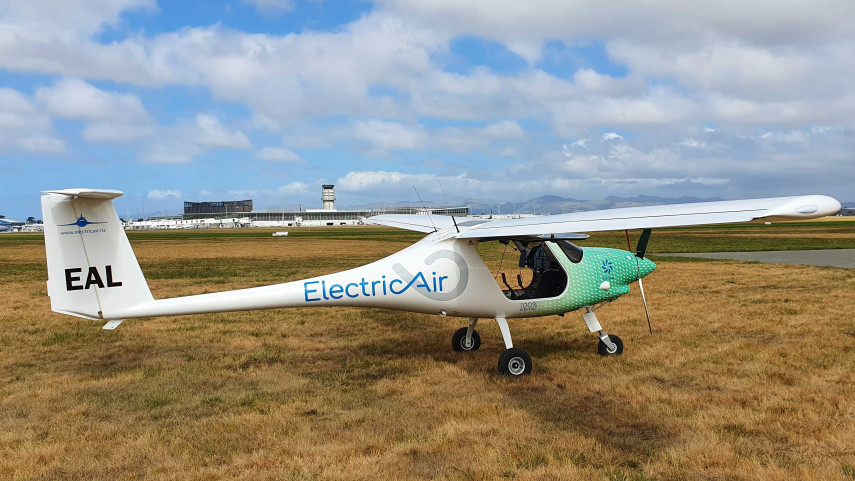
‘Green’ plane powers into Christchurch

Share this story
New Zealand’s first passenger battery electric aircraft will take flight from Christchurch today.
Christchurch-based ElectricAir has brought the Slovenian-made Pipistrel Alpha Electro two-seater training aircraft to the city to highlight zero exhaust-emission technology.
Launched at Christchurch International Airport today, the plane will be used for trial flights and training and be available for hire to qualified pilots.
Mayor Lianne Dalziel welcomed the new arrival, describing the electric aircraft as a “perfect fit for a city of opportunity and a major step towards cutting aviation-related greenhouse gas emissions”.
“We are strongly committed to new technologies that help us set the standard for the future,” she says.
“Offering strong leadership in innovation and implementation of zero exhaust emission initiatives will help put us at the forefront of emerging technologies.”
ElectricAir founder Gary Freedman believes that electric aircraft offer opportunities for education, job creation and economic growth in Christchurch.
“ElectricAir has opted to be based in Christchurch because the city has a reputation for innovation, particularly in the aerospace and aviation sectors,” he says.
“New Zealand has one of the highest rates of short-haul flights per person of any country in the world, and our electricity grid is powered by predominantly renewable sources.
“We want to promote ‘green flying’ to reduce the aviation industry’s greenhouse gas emissions.”
The Pipistrel Alpha Electro can fly for an hour, plus half an hour reserve, which is the ideal duration for training flights.
Operators can recharge the aircraft, which will operate from both Christchurch and Rangiora, in under an hour, using a dedicated charger at Christchurch International Airport.
Along with the low-cost maintenance, the aircraft is about 70 per cent quieter than normal aircraft.
Council Resource Efficiency Manager Kevin Crutchley says the battery electric aircraft is “just the type of innovation that the Council wants to support for the city”.
“Aviation transportation is a significant source of greenhouse gas emissions and this initiative demonstrates a technology that reduces emissions and provides the opportunity to educate pilots and the community about this exciting new technology,” he says.
The project has been supported by a $40,000 grant from the Christchurch City Council Innovation and Sustainability Fund and a $19,000 grant from the Christchurch Agency for Energy Trust.
